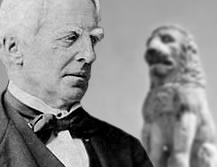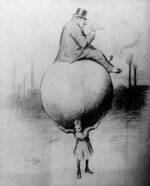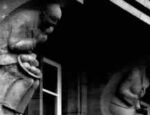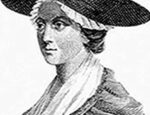Description
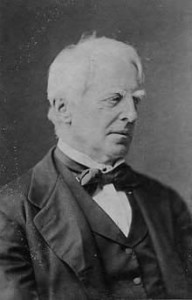 Listen to Robert Lowe, 1st Viscount Sherbrooke, a disappointed career classicist and anti-democrat, who used Greek myth and history and Latin in a famous oration opposing Disraeli’s Reform Bill in 1867. A Nottinghamshire Anglican priest’s son, he was miserable at Winchester School. But he gained a First Class degree in Classics from University College, Oxford. He had to resign an Oxford fellowship when he married, and was bitter when not appointed to the Chair of Greek at Glasgow in 1836.
Listen to Robert Lowe, 1st Viscount Sherbrooke, a disappointed career classicist and anti-democrat, who used Greek myth and history and Latin in a famous oration opposing Disraeli’s Reform Bill in 1867. A Nottinghamshire Anglican priest’s son, he was miserable at Winchester School. But he gained a First Class degree in Classics from University College, Oxford. He had to resign an Oxford fellowship when he married, and was bitter when not appointed to the Chair of Greek at Glasgow in 1836.
While working as a lawyer In Australia, Lowe acquired a loathing of the labour movement, which powerfully informed his career as an English politician. In his tirade during the parliamentary debate on July 15th 1867, he compared the enfranchisement of some of the male urban working class with the opening by Odysseus’ crewmen of Aeolus’ bag: it would be ‘to enter upon a new era, when the bag which holds the winds will be untied, and we shall be surrounded by a perpetual whirl of change, alteration, innovation, and revolution.’ The problem with allowing poor people to vote is that it woud ‘be impossible for them to resist bribery. You make them the helots of the Constitution.’
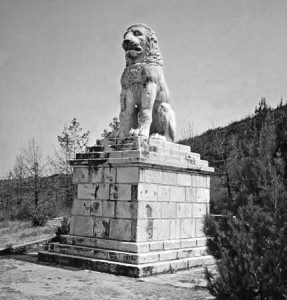 Lowe resorted to an obscure Latin quotation, which he did not translate, in his anti-democratic fervour: he said he felt like Clovis, a Frankish king who was converted and baptised in 496 AD. The bishop enjoined Clovis, ‘Adora quod combusisti combure quod adorasti.’ [Worship the things you have set fire to and set fire to the things you worshipped,’ from the medival Chronicle of St. Denis]. Then Lowe quoted (in Latin) Turnus’ speech urging the Italians against surrender in Virgil’s Aeneid (11.423-4): ‘Why thus, unforc’d, should we so tamely yield, / And, ere the trumpet sounds, resign the field?’ Another untranslated quotation from the Aeneid (Juno’s speech at 4.93) was used sarcastically to tell parliament that it was being ‘well rewarded’ for its folly.
Lowe resorted to an obscure Latin quotation, which he did not translate, in his anti-democratic fervour: he said he felt like Clovis, a Frankish king who was converted and baptised in 496 AD. The bishop enjoined Clovis, ‘Adora quod combusisti combure quod adorasti.’ [Worship the things you have set fire to and set fire to the things you worshipped,’ from the medival Chronicle of St. Denis]. Then Lowe quoted (in Latin) Turnus’ speech urging the Italians against surrender in Virgil’s Aeneid (11.423-4): ‘Why thus, unforc’d, should we so tamely yield, / And, ere the trumpet sounds, resign the field?’ Another untranslated quotation from the Aeneid (Juno’s speech at 4.93) was used sarcastically to tell parliament that it was being ‘well rewarded’ for its folly.
In conclusion, Lowe amplified his comparison of the imminent ‘victory’ of the working class with Philip of Macedon’s victory over Athens at the battle of Chaeronea in 338 BC. (This was his most specious comparison, because the Macedonian conquest imposed tyranny and ended Athenian democracy.) He asked his hearers to visualise the celebrated stone lion which was erected on the battlefield, and ‘the power and the spirit which portrayed in the face of that noble beast the rage, the disappointment, and the scorn of a perishing nation and of a downtrodden civilization.’ He then claimed that England needed an orator like Demosthenes to express ‘the shame, the rage, the scorn, the indignation, and the despair with which this measure is viewed by every cultivated Englishman.’
It is difficult not to feel that Lowe’s classical expertise would have been put to less dangerous use in academia.
The full speech may be read here.

